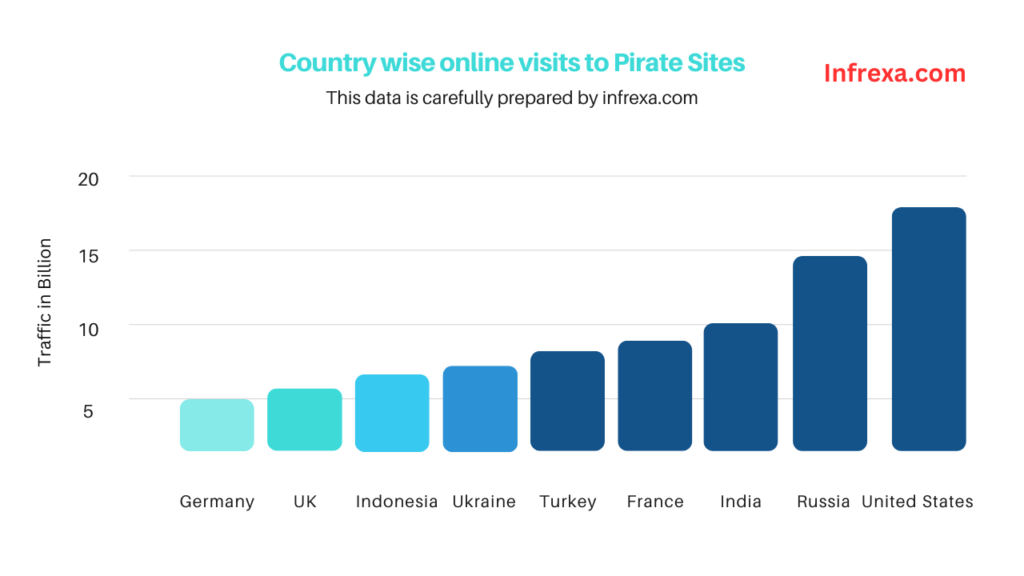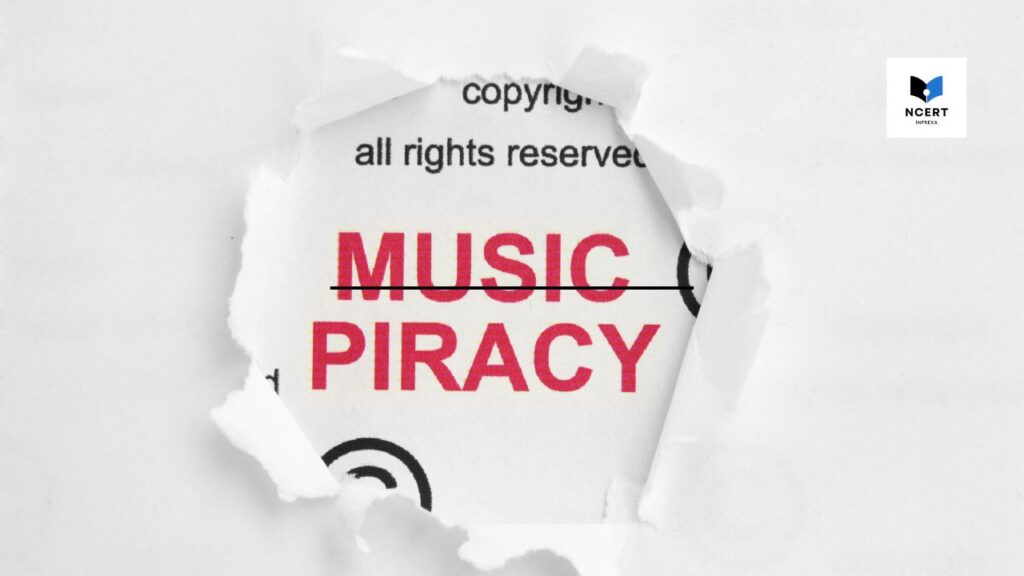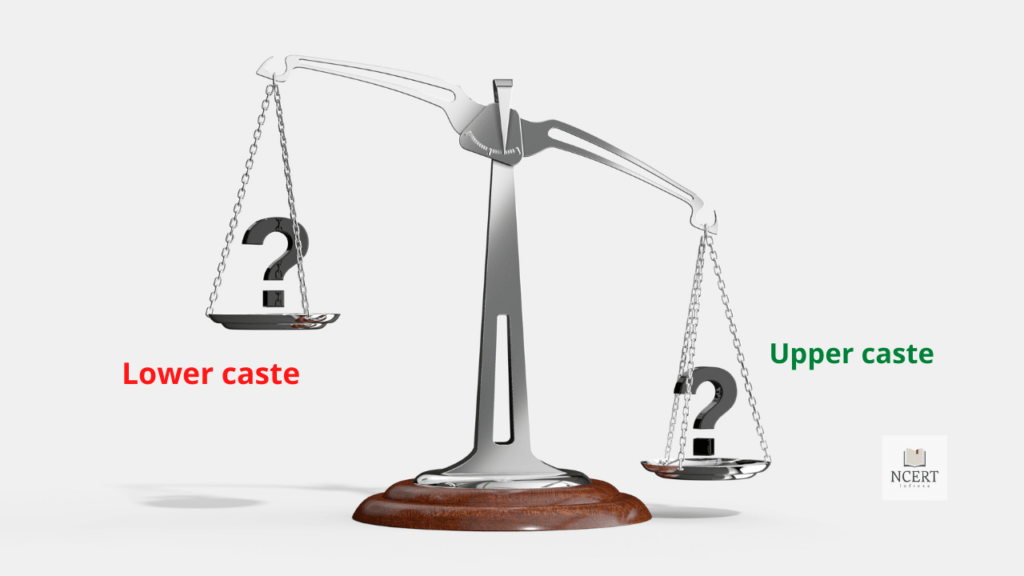Music piracy is the unauthorized copying, distribution, or use of copyrighted music.
In the United States, it is a federal crime punishable by up to five years in prison and a fine of $250,000. It is also a crime in many other countries.
In other words – It is the illegal downloading or sharing of music without permission or payment to the artist or copyright holder. It’s a form of copyright infringement and can be punishable by law in terms of Civil or criminal proceedings.

Types
There are two main types of music piracy:
- Online piracy: It is the illegal downloading or sharing of copyrighted music files over the internet.
- Physical piracy: Physical piracy is the unauthorized duplication of music CDs or other physical media.
Both online and physical piracy are major problems for the music industry. According to a report by the International Federation of the Phonographic Industry (IFPI), global music sales fell by 7% in 2013 due to piracy. This loss amounted to $16.5 billion in revenue.
The recent IFPI report found that online piracy is the biggest problem facing the music industry, accounting for 70% of all lost revenue. Physical piracy accounted for 30% of lost revenue.
While online piracy has been growing rapidly in recent years, physical piracy has actually declined thanks to measures taken by governments and the industry to crack down on it.
Read: What does sustainable mean? Learn with Examples
For example, many countries have implemented laws that make it illegal to duplicate copyrighted material without permission. In addition, many retailers have stopped selling pirated CDs and DVDs.
Despite these efforts, however, physical piracy remains a significant problem in many parts of the world, particularly in Asia and Latin America.
How music piracy is done?
There are three primary ways through which it is done:
- Downloading,
- Streaming, and
- CDs
Downloading is the most common form of music piracy, and involves illegally downloading a digital copy of a song or album from the internet. This can be done through file-sharing websites or peer-to-peer (P2P) networking.
Streaming is another popular way which refers to illegally listening to or watching copyrighted material online. This can be done through websites that offer free, unlicensed streams of songs or movies, or through so-called “ pirate” streaming services that offer unauthorized streams of copyrighted content.
Read: What is Invasion of Privacy? Learn with examples
Finally, CDs are sometimes pirated by copying them onto blank discs or downloading them as MP3 files. This type of piracy is less common than it used to be, but it still occurs in some parts of the world.
How does it affect the music industry in the United States?
It affects the music industry in the United States by preventing artists from being paid for their work, and by causing a decline in sales of legitimate music products.
This, in turn, hurts the economy and costs jobs.
What are some ways to prevent music piracy?
There are a number of ways to prevent this illegal act. One is to purchase music only from authorized sources, such as iTunes or Amazon.com.
Another is to use a program like Rhapsody that allows you to stream music without downloading it onto your computer.
Finally, you can use a service like MusicID that matches the fingerprints of your music files against a database of known pirated tracks and then deletes the pirated tracks from your hard drive.
Related Laws
The most relevant and well-known law is the Copyright Act of 1976. This Act provides copyright protection for a variety of musical works, including recordings, compositions, and live performances.
The Copyright Act prohibits the unauthorized reproduction, distribution, performance, or display of a copyrighted work. This means that it is illegal to copy or distribute a copyrighted song without the permission of the copyright owner.
Additionally, it is illegal to perform or display a copyrighted work publicly without the permission of the copyright owner.
There are a number of other laws that relate to music piracy in the United States of America. For example, the Digital Millennium Copyright Act (DMCA) is a federal law that prohibits the circumvention of technological measures that control access to copyrighted works.
The DMCA also criminalizes the production and distribution of devices that are designed to circumvent these technological measures.
The Stop Online Piracy Act (SOPA) was a proposed federal law that would have expanded the ability of law enforcement to combat online piracy. However, SOPA was not enacted into law due to widespread opposition from internet users and technology companies.
PIPA was similar to SOPA in many ways, but it was not enacted into law either.
Conclusion
Music piracy is not only a complex issue and continues to be of major concern for music industry stakeholders in the United States of America but also the biggest issue at the worldwide level.
We hope this article has helped give you a better understanding of the current situation, as well as the potential solutions that may help to reduce it.
Whilst there is no one-size-fits-all solution, we believe that it can be effectively addressed through a combination of technological measures, legal action and educational campaigns.
With continued vigilance from all sides, we can work together toward reducing this illegal act in America and giving artists their rightful recognition for their hard work.
Read these also:




